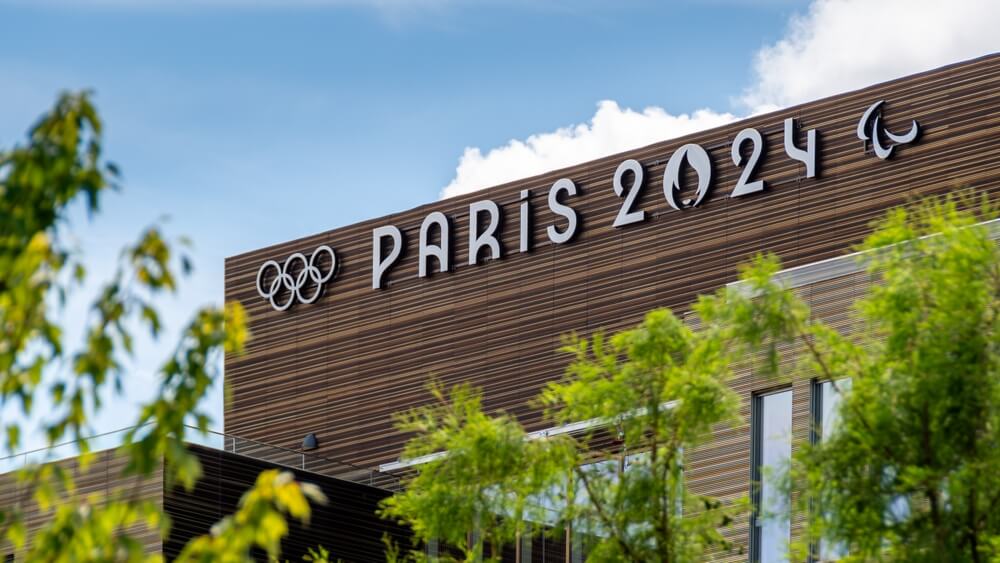Unprecedented security risks will accompany the Paris Olympics until the closing ceremony on August 11. In the meantime, the athletes will be competing under double pressure—to achieve the best result but also not to expose themselves to security problems.
The spectacular opening ceremony with the parade of competitors went smoothly without any security problems and was the most important test for the organisation as it was the first time the ceremony was held in a large urban area.
However, the entire competition, which has only just begun, has remained a major concern due to the attempted diversion on several of the main railway lines leading from Paris to other parts of France.
"What we know, what we see is that this operation was prepared, coordinated, that 'nerve centres' were targeted, which shows a form of knowledge of the network to know where to strike. I can’t tell you more about the authors and their motivations. But I see the impact, a massive impact for many of our fellow citizens,” said Gabriel Attal, French Prime Minister.
The interruption of rail transport left approximately 800,000 people stranded while authorities dealt with the sabotage's consequences. But this looming overture remains a concern for the 15 million tourists who will stay in Paris during the Olympic Games, particularly the 10,700 athletes.
Threats from Islamists and Russian services
Security threats, as well as the danger of terrorist actions during the Paris Olympics, come from many angles. Therefore, a number of teams have reasons for concern, and it is the responsibility of their leaders to ensure maximum peace and security during the competition.
Islamist extremists have threatened France for years, but the start of the Olympic Games in Paris escalated these threats. On the eve of the Olympics, French intelligence services identified dozens of Islamic State leaders in Turkey and Syria who are capable of activating their followers in France at any time.
The French authorities are warning about the increasing destructive activity of Russian security services
The domestic political turmoil surrounding Israel's war against Hamas in Gaza intensifies these threats, placing more pressure on both the organisers and competitors.
The French authorities are also warning about the increasing destructive activity of Russian security services, as Russia cannot accept the ban on the participation of its athletes due to the aggression against Ukraine.
The French counter-intelligence agencies have been investigating several arrests of individuals linked to the Russian intelligence in the last few weeks alone.
Risky travel
Many competitions will take place at some of the most significant Parisian landmarks, such as the foot of the Eiffel Tower or the Grand Palais, making the Paris Olympics notable for their decentralisation.
Many competitions will take place outside Paris, in Lyon, Marseille, and other cities, which means that hundreds of athletes, coaches, and officials will be travelling frequently in France over the next two weeks.
All of this means an additional risk of incidents, and the hosts face a huge organisational task to ensure the safety of competitors throughout most of France at all times.
The huge presence of security forces is the largest ever at the Olympic competitions, which is why all participants stress that they feel safe in France
The huge presence of security forces, around 60,000 from the police, army, and specialised security services, is the largest ever at the Olympic competitions, which is why all participants stress that they feel safe in France.
However, the massive security measures, which even included the diversion of air traffic over large parts of France before and during the opening ceremony, can only put additional pressure on the athletes.
Psychological support for athletes
Israeli athletes are particularly under pressure, as their team received threats long before the start of the Olympic Games that there would be a repeat of the 1972 Munich terrorist attack, which was carried out by Palestinian extremists.
As a result, the Israeli government sent a large and armed Shin Bet team to Paris to work with French security organisations to ensure the safety of the participants and the sports delegation.
 The French organisers have offered athletes special support during the Olympics to help them maintain their mental health
The French organisers have offered athletes special support during the Olympics to help them maintain their mental health
According to Paul Benvie, a US State Department official in charge of national team security during the Paris Olympics, both Israel and US teams consider anti-Israeli sentiment to be "one of a number of issues" they pay attention to when it comes to the athletes' safety.
One Israeli athlete calmly told CNN that the protests upon their arrival were "something they're used to," and that he feels extremely safe.
But the scale and intensity of the threats, as well as the unprecedented security measures, will leave a mark on competitors' mental preparation for the most important fights of their careers.
For precisely this reason, the French organisers have offered athletes special support during the Olympics to help them maintain their mental health, particularly in dealing with cyber threats and cyberbullying.
If they experience mental pressure, they will be able to use the advice of a psychologist through a new online application designed just for the participants of the Olympics, and a team of psychologists will be available to them in the Olympic village during the competition.
"The psychological stability of athletes deserves all of our attention. More than ever, they should feel safe and should be supported when they go through moments of difficulty or doubt or have a need to express themselves," said Marina Ferrari, French Secretary of State for digital affairs.